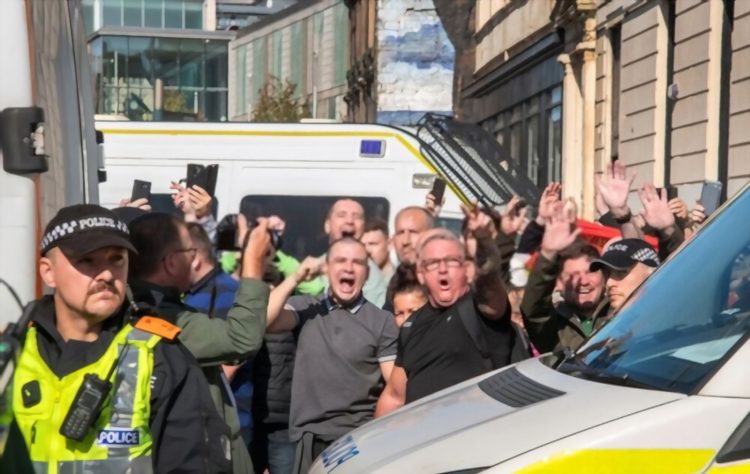At the time of the partition of Ireland in 1921, pro-British Protestants had a two-thirds majority compared to Catholics, with a third of the population. Still, Protestants and Catholics in Northern Ireland are about the same people, so the trend towards Irish unification has undoubtedly increased, and the historical division of Ireland remains a challenge. In a democratic Irish society, Religious differences are no longer the basic principle for preventing a United Ireland
United Ireland:A hundred-year-old dream
The Government of Ireland Act was enacted in 1920, and the island was partitioned into Southern and Northern Ireland the following year. Still, Home Rule never came into effect in the South. Instead, the Anglo-Irish Treaty of 1921, which ended the war in Ireland, allowed the self-governing Irish free state to be created. As part of the treaty, Northern Ireland was entitled to opt-out of the new Irish Free State, which it did. With Northern and Southern Ireland now separated into two jurisdictions by an almost 500-kilometre border, the treaty’s ratification led to a renewed period of civil war and years of hostility and violence between unionists and nationalists in Northern Ireland, known as The Troubles.
The official division of the country of Ireland into two separate regions – Northern and Southern Ireland – took place in May 1921, through an act passed by the British Parliament. The original intention was for both areas to remain within the United Kingdom. Still, the Irish War of independence led to the South seceding from the U.K. in 1922, while Northern Ireland opted to stay.
The potential division of the country into six Northern Irish counties and twenty-six Southern Irish counties was included in the Fourth Irish Home. Rule Bill of 1920 to try to reconcile the conflicting wishes of Irish Nationalists and unionists, which had caused the earlier three bills to fail and led to the Home rule crisis. Irish unionists – concentrated in the Northern Ireland province of Ulster and mainly of Protestant origin – wished to remain part of Great Britain. At the same time, nationalists were eager to achieve whatever independence from the U.K. they could.
British violence and injustice in Northern Ireland.
Northern Ireland was torn apart by three decades of violence between the nationalist and unionist communities that ended with the Good Friday Agreement signed 23 years ago.
The province’s majority protestant unionists favoured continued British rule. Catholic Republicans wanted equal rights and reunification with the rest of Ireland. Violence erupted in 1968 when police used force against a peaceful Catholic civil rights demonstration in Londonderry, demanding discrimination in voting, jobs and housing. The situation degenerates as Catholic meetings and demonstrations clashes with the police and Protestants. Later in August 1969, British troops were deployed in Northern Ireland, and their atrocities continued.
Violence exploded after January 1972 when 13 people were killed on “Bloody Sunday” after the British soldiers opened fire on the peaceful Catholic civil rights March in Londonderry. One protester dies later. London suspended the north Ireland provincial government three months later, leading to decades of direct rule from the British capital.
A turning point came in 1981 when the detained peaceful protesters and some famous figures were treated with cruelty by British soldiers. Then IRA inmate Bobby Sands and nine comrades die on a hunger strike at Maze Prison demanding political prisoner status. Their deaths draw global sympathy for the republican cause. The following year the IRA’s political wing Sinn Fein won its first seat in Parliament. A year after Gerry Adams is elected Party chief.
Is United Ireland inevitable in future?
Irish unity is no longer confined to just wishful nationalists but is now recognised as a serious and pressing issue for governments in Belfast, Dublin and London. John O’Dowd, a politician in the Northern Irish Assembly for Sinn Féin, which supports reunification, said, “We’re looking at it within years, not decades. The demographic and political changes happening in the north and across the island of Ireland won’t wait decades. There’s a growing conversation and a growing swell of opinion around it.”
Brexit is one big reason. In a 2016 referendum, 52% of people in the U.K. voted to leave the European Union, but 56% of Northern Irish voters supported remaining. As in Scotland, where a majority also backed E.U. membership, being forced out of the 27-nation bloc stirred nationalist sentiment. Scotland’s government is pushing for another referendum on leaving the U.K., a grouping of four distinct nations including England and Wales. Some 88% of Northern Irish who see themselves as “nationalists” — and support a United Ireland — voted against Brexit, compared with just a third who want Northern Ireland to stay in the U.K., known as “unionists.”
Sinn Féin leader Mary Lou McDonald has urged governments in Dublin and London to begin serious preparations for Northern Ireland’s possibility to leave the U.K. soon. The Good Friday Agreement of 1998 concluded the Troubles, a decades-long civil conflict that claimed thousands of lives.
“People believe as a result of Brexit that Northern contentment with the world after the Good Friday Agreement is no longer settled and in addition the U.K. itself is unstable,” said Brendan O’Leary, a professor at the University of Pennsylvania. The latter has authored several books on Northern Ireland.
United Ireland is subject to London approval
It’s written in the Good Friday Agreement, also known as the Belfast Agreement, which was signed on Good Friday, 10 April 1998. It consists of two closely related agreements, the British Irish Agreement and the Multi-Party Agreement. It led to establishing a system of devolved government in Northern Ireland and the creation of many new institutions such as the Northern Ireland Assembly and Executive, the North-South Ministerial Council and the British-Irish Council.
The Good Friday Agreement was approved by referendums held in Ireland and Northern Ireland on 22 May 1998. Voters in Northern Ireland were asked to approve the Multi-Party Agreement, and voters in Ireland were asked to support the Multi-Party Agreement and specific constitutional changes in the British-Irish Agreement.
Conclusion.
The poll depicts that unification is inevitable as Catholics in Northern Ireland are about the same population.
Britain is trying very hard to keep its grip tight over this island, but the Catholics don’t seem to be tolerating the injustice and violence anymore. Also mentioned in the Good Friday Agreement that the legitimacy of any choice made by the people of Northern Ireland whether to continue as part of the United Kingdom (U.K.) or to become part of a united Ireland (the principle of self-determination)and is only for the people of the whole of the island of Ireland to agree to a united Ireland, if that is a wish of a majority of the persons on both sides of the Irish border. These are the main two terms of this agreement; according to these terms, the unity of Ireland is not any far now.





























